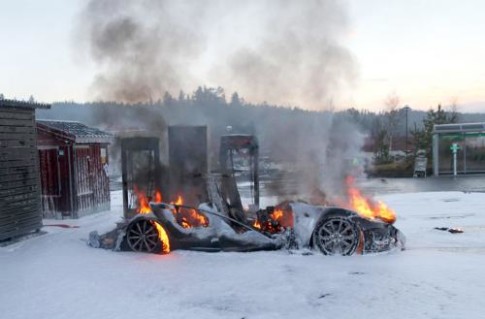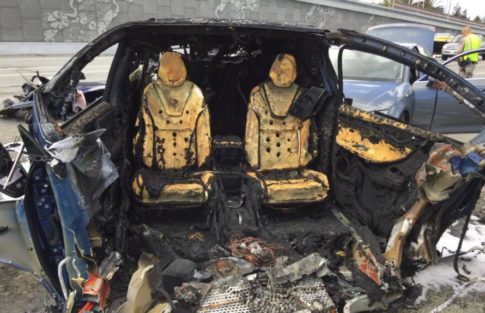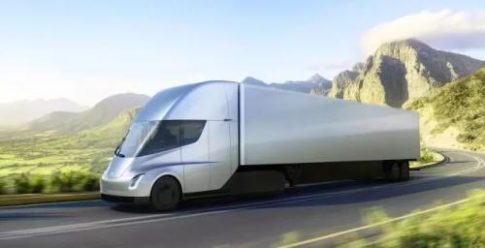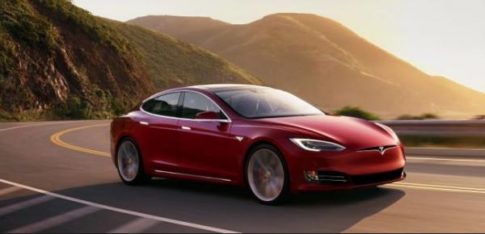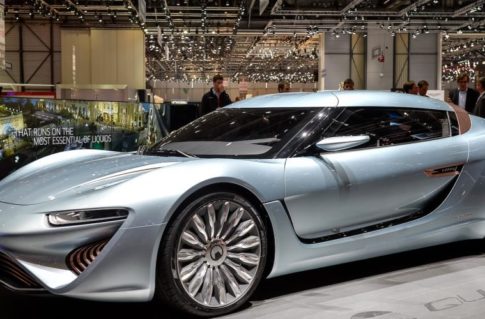
– This Car Is Powered By Salt Water: 920HP, Top Speed 217.5 MPH, 373 Miles/Tank:
It works just like a hydrogen fuel cell except that the liquid used for storing energy is saltwater. This isn’t far from the water powered car, an idea labelled as a conspiracy by many despite the massive amount of evidence behind it. You can read more about that here.
In this case (saltwater) the liquid passes through a membrane in between the two tanks, creating an electric charge. This electricity is then stored and distributed by super capacitors. The four electric motors in the car are fed electricity which makes it run. The car carries the water in two 200-litre tanks, which in one sitting will allow drivers to travel up to 373 miles (600km). Overall, the four-seater is 5.25 metres (0.4ft) long, 2.2 metres wide (7.2ft), the 1.35 metre (4.4ft).
“After making its debut at the 2014 Geneva Motor Show (pictured) in March, the saltwater technology has now been certified for use on European roads.” (source)
Nanoflowcell AG is the company behind the design, and they are currently preparing the technology for mass production.
‘We’ve got major plans, and not just within the automobile industry. The potential of the NanoFlowcell is much greater, especially in terms of domestic energy supplies as well as in maritime, rail and aviation technology” – NanoFlowcell AG Chairman of the Board Professor Jens-Peter Ellermann.
https://youtu.be/nzrKZcbaMwA
Read moreThis Car Is Powered By Salt Water: 920HP, Top Speed 217.5 MPH, 373 Miles/Tank

